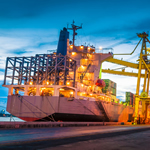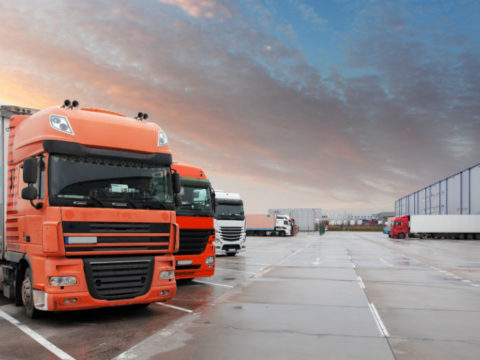Negotiations for Brexit have been a long time in the making and Britain is still uncertain as to what the outcome may constitute. However, the majority seem to be in the agreement that the repercussions of a no-deal outcome could be catastrophic for UK businesses across the country.
The Maritime Industry has made it clear they’re hoping for an agreement to be made. The industry does not take the opinion that no-deal is better than any deal and have in-fact called for a potential extension to Brexit talks to avoid the risk of a no-deal outcome. The repercussions of waiting for a settlement to be reached is the delay of any advance preparations required to prepare for any potential changes which may impact the industry.
Simmonds is currently in the process of writing up technical advice documents on Brexit and how to deal with it, however, they are finding it difficult due to the uncertainty surrounding the decision. With no-one knowing the outcome of future talks, it’s impossible to make a clear plan to work around the impact.
Consequences of a ‘no-deal’ outcome
A no-deal outcome could cause disruption at ports including Dover, Holyhead and Portsmouth and could also have an impact on EU ports like Calais. It has been predicted that already congested ports, such as Dover, could face permanent traffic jams up to 20 miles long unless EU proposals are met in Brexit talks. In the worst case scenario, lorry drivers could be stuck in queues for the port up to days on end.
Disruptions could affect supply chains and minsters have predicted that in the event of a no-deal Brexit, Britain may well need to stockpile food, medicines and other supplies to prepare against the repercussions of this. With 50% of the nation’s food, 80% of our fresh vegetables and 30% of our fresh fruit imported from the EU and Ireland, this could have a huge impact on how Britain’s food industry currently operates.
It has been predicted that British ports and shipping companies will need at least three years to devise a new customs system in the event of a no-deal Brexit, including new IT systems, retraining of staff and a brand new infrastructure. It also needs to be ensured that customs systems are aligned with the rest of the EU, so one country’s way of working isn’t hit by the red tape of the UK, or vice versa.
All in all, the shipping industry agrees that a no-deal scenario would not be positive for the maritime shipping industry in the short term and the long-term effects are uncertain.
What happens once an agreement has been reached?
The maritime industry agrees that Brexit will have significant positive and negative impacts on the shipping industry in particular. A ‘hard Brexit’ will bring with it increased trade hurdles, a consequence already being prepared for by ports such as Zeebrugge, Rotterdam and Calais who have already hired more customs officials and produce inspectors and are already predicting a likely need to hire more agents in the future.
It’s believed that Brexit will bring with it a temporary slowdown in growth/trade. It is too early to say what the impact of Brexit on maritime trade will be in the long term, but it is thought to be improbable that Brexit will have a substantial bearing on overall UK maritime volumes.
There are also potential negative repercussions from any restrictions placed on immigration pending Brexit talks. The UK relies greatly on skilled people from across the globe, and if their right to remain is called into question and it becomes harder to live and work in the UK, this could limit the number of European citizens wanting to work within the UK maritime sector. This could seriously harm the UK shipping cluster.
Opportunities in the future
Whilst Brexit is certain to impact the maritime industry, no matter what decision is made, it isn’t all predicted to be doom and gloom. The industry is foreseeing a new or improved bilateral trade agreement between the UK and countries such as India, the US, Canada and South American countries. When in the EU, the UK government needed to get consensus approval from 27 EU countries when striking agreements with countries such as India, so Brexit will give them the chance to create agreements independently – opening a lot more scope for the countries the UK can operate with. Furthermore, politicians in Australia have already agreed to discuss a bilateral deal.
The government is working with the industry to deliver an ambitious export plan which they believe will put the UK as global front-runners in the shipping industry. This plan includes doubling the number of apprenticeships that maritime companies currently offer, working with industry partners to grow the sector and developing new trade opportunities, in-turn creating more jobs across the UK. Transport Secretary Chris Grayling believes Brexit can help the UK to ‘rediscover our heritage as a truly global, seafaring, trading nation.’
Safeguard’s assurance to you
Safeguard believes in supporting industries during this period of uncertainty, having built our reputation on tackling unusual or uncommon risks. This is why we’re offering a
reduction of 15% off your current insurance*, for all new maritime customers.
Contact us today on 01322 337557 or email
sales@safeguardinsurance.co.uk.
*Subject to terms and conditions




